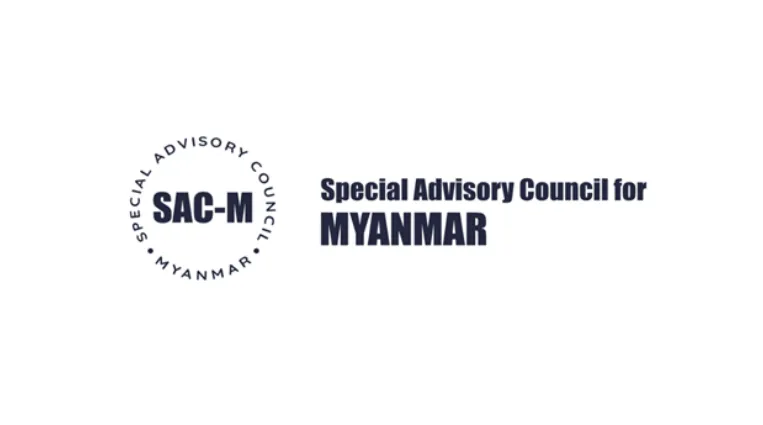Myanmar Military Leaders Must Be Prosecuted for Genocide Without Further Delay
24 March 2022

24 March 2022: The international community must ensure that leaders of the Myanmar military are prosecuted for genocide in international courts without further delay, following the United States (US) government determination that genocide was committed against the Rohingya, says the Special Advisory Council for Myanmar (SAC-M).
SAC-M welcomes the important US government determination that genocide and crimes against humanity were committed against the Rohingya in Myanmar. The determination could not be more urgent, having been delayed for three and a half years after the State Department’s own report documenting the atrocity crimes was first released, and as the military continues to commit massive violations against peoples across Myanmar.
“It is now incumbent on the US and the wider international community to ensure that leaders of the Myanmar military are held to account through criminal prosecutions in international courts,” said Marzuki Darusman of SAC-M. “Accountability for the Myanmar military’s crimes against the Rohingya is urgently needed in addition to the proceedings seeking to determine Myanmar’s State responsibility for genocide before the International Court of Justice.”
One million Rohingya refugees continue to live in restricted camps in Bangladesh, with thousands more living precariously in other countries neighbouring Myanmar. Rohingya that remain in Myanmar are confined either to internment camps or remote villages and face ongoing violence and persecution from the military and security forces.
“Ensuring accountability for the grave crimes committed against the Rohingya is not only an obligation of the international community and an issue of justice for the victims. Without justice and accountability, there is no chance of ending the massive oppression and horrific violence still faced by the Rohingya and other peoples across Myanmar,” said Chris Sidoti of SAC-M. “The military will continue to commit atrocities unless and until its leaders are made accountable.”
SAC-M also welcomes the US government’s commitment of funding to the Independent Investigative Mechanism for Myanmar (IIMM), which is tasked with collecting evidence of the most serious international crimes and violations of international law in Myanmar, and with preparing files for criminal proceedings. However, at present, there remains no court willing and able to take such proceedings. Without a court able to act, the work of the IIMM is in vain.
The National Unity Government of Myanmar has accepted the full jurisdiction of the International Criminal Court in Myanmar dating back to 2002, as well as that of the International Court of Justice in the case brought by The Gambia under the Genocide Convention, but these efforts have so far been ignored by the courts.
“If the international community will not engage with Myanmar’s democratically elected representatives in their efforts to secure justice and accountability, then the obligation falls to the international community itself to ensure – without further delay – that there is a tribunal with necessary jurisdiction where leaders of the Myanmar military can be prosecuted for genocide. If the International Criminal Court fails to undertake prosecution of Myanmar military leaders, this may require the establishment of an ad hoc tribunal,” said Yanghee Lee of SAC-M. “The US Genocide determination is another important step towards justice for the Rohingya, but we cannot stop there.”
Announcements
28 February 2025
Asian NGO Network on National Human Rights Institutions , CSO Working Group on Independent National Human Rights Institution (Burma/Myanmar)
Open letter: Removal of the membership of the dis-accredited Myanmar National Human Rights Commission from the Southeast Asia National Human Rights Institution Forum

Progressive Voice is a participatory rights-based policy research and advocacy organization rooted in civil society, that maintains strong networks and relationships with grassroots organizations and community-based organizations throughout Myanmar. It acts as a bridge to the international community and international policymakers by amplifying voices from the ground, and advocating for a rights-based policy narrative.